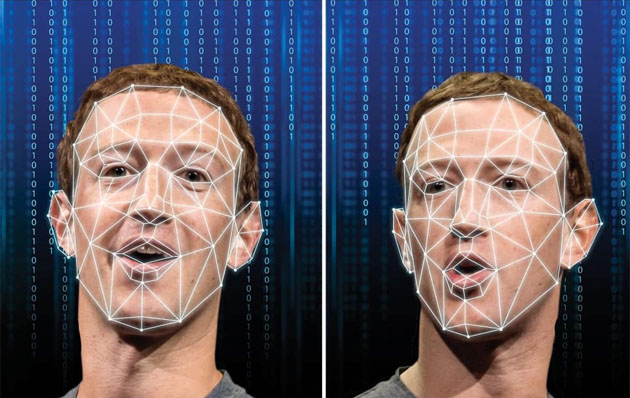The world of deepfake advertising is coming this decade

Deepfake video of Facebook CEO Mark Zuckerberg was circulated in 2019, drawing attention to the potential of the technology. Image credit: Flickr
In summary
- The world of deepfake advertising is coming in the next decade
- The technology will allow marketers to personalise ads to every single consumer
- Deepfakes could be intentionally, obviously fake to protect brands from reputational damage
Manipulated advertising is becoming an increasingly prevalent phenomenon in marketing. Techniques such as deepfakes leverage AI and machine learning to generate convincing, true-to-life, synthetic replicas that are nearly impossible for consumers to detect.
New Swinburne research reveals how deepfakes are likely to be used by companies and marketers in Preparing for an Era of Deepfakes and AI-Generated Ads: A Framework for Understanding Responses to Manipulated Advertising.
What’s clear is that the world of deepfake advertising is coming. Researcher and co-writer of the paper, Professor Sean Sands, says, “It’s likely that deepfakes will be widely used in mainstream media within a decade.”
Deepfakes are already here – just not widespread
To date, content produced by synthetic methods is mostly user-generated, often by technologists showcasing their AI prowess by training AI to swap faces or voices of very different actors or politicians. Much of this user generated content is obviously fake. The producers’ intentions are less likely to fool, mislead or trick audiences, but to create humour and demonstrate the potential capabilities of this emerging technology.
Advertisers will be capable of producing deepfakes indistinguishable from the real thing – including deepfakes of ourselves in advertising – although experts say there will be benefits to steer away from being too real or accurate.
Will the future of deepfakes scare or excite people?
Researcher in digital innovations in marketing and advertising, Associate Professor Colin Campbell says brands could personalise ads to every single consumer, at a scale never seen before.
“Imagine ads that skip the model entirely and show you wearing the clothes – something similar to the futuristic ads in the 2002 film, Minority Report,” he says.
“It’s a concept that may prove too intimidating for many consumers. There is an abundance of research that shows greater positive effects when consumers see people like them in ads. Brands could tailor ads by serving up a deepfake model matching your exact ethnicity, height, wearing clothes similar to what you’ve purchased previously or liked online, standing on a street near your home or workplace using data extracted from social media, retail sensors or loyalty programs.”
The research shows that these personalised ads could lead to more sales and improved reputation for brands, so long as they don’t cross over into hyper customer surveillance – leading to privacy concerns and feelings of vulnerability from consumers.
Deepfakes might look internationally, well… fake
Researcher in innovations in retail and social media, Professor Sands, points out that just because we can make deepfakes indistinguishable from the real thing, doesn’t mean we will when it comes to advertising.
“Marketers will strive to create ‘authentically human’ deepfakes to seem ‘real’. But we also have research that suggests consumers can be more forgiving of obviously virtual influencers. Some businesses may strive to make the fact a deepfake is fake known, so their consumers may be more forgiving of their transgressions.”
-
Media Enquiries
Related articles
-

- Technology
- Science
- Engineering
Victorian students drive green energy transition through international hydrogen competition
Swinburne’s KIOSC, in collaboration with Horizon Educational and Gippsland Tech School, co-hosted the Hydrogen Grand Prix in Melbourne.Friday 26 July 2024 -

- Technology
- Health
New MedTechVic prototypes to transform everyday lives of people with a disability
Swinburne’s MedTechVic has revealed three new prototypes designed through the joint Health-led Manufacturing Innovation Program, in partnership with the Australian Medtech Manufacturing Centre and Safer Care Victoria
Friday 19 July 2024 -

- Business
- Technology
Swinburne’s Luminate Pitch Night 2024 advances innovative ideas for a better world
Swinburne’s 2024 Luminate Pitch Night showcased market-ready ideas from 10 founders
Wednesday 12 June 2024 -

- Health
- Technology
Clinical Innovation Fellowships develop creative solutions to Australia’s healthcare challenges
MedTechVic is gearing up to begin its fourth year of the Clinical Innovation Fellowship Program (CIFP), following the highly successful third round in 2023.
Wednesday 19 June 2024 -

- Technology
- Aviation
- Sustainability
Swinburne partners with Latrobe City Council to propel Victoria’s Advanced Air Mobility precinct
Swinburne has become the first Foundation Member of the newly established Latrobe Aerospace Technology Precinct.
Friday 03 May 2024

